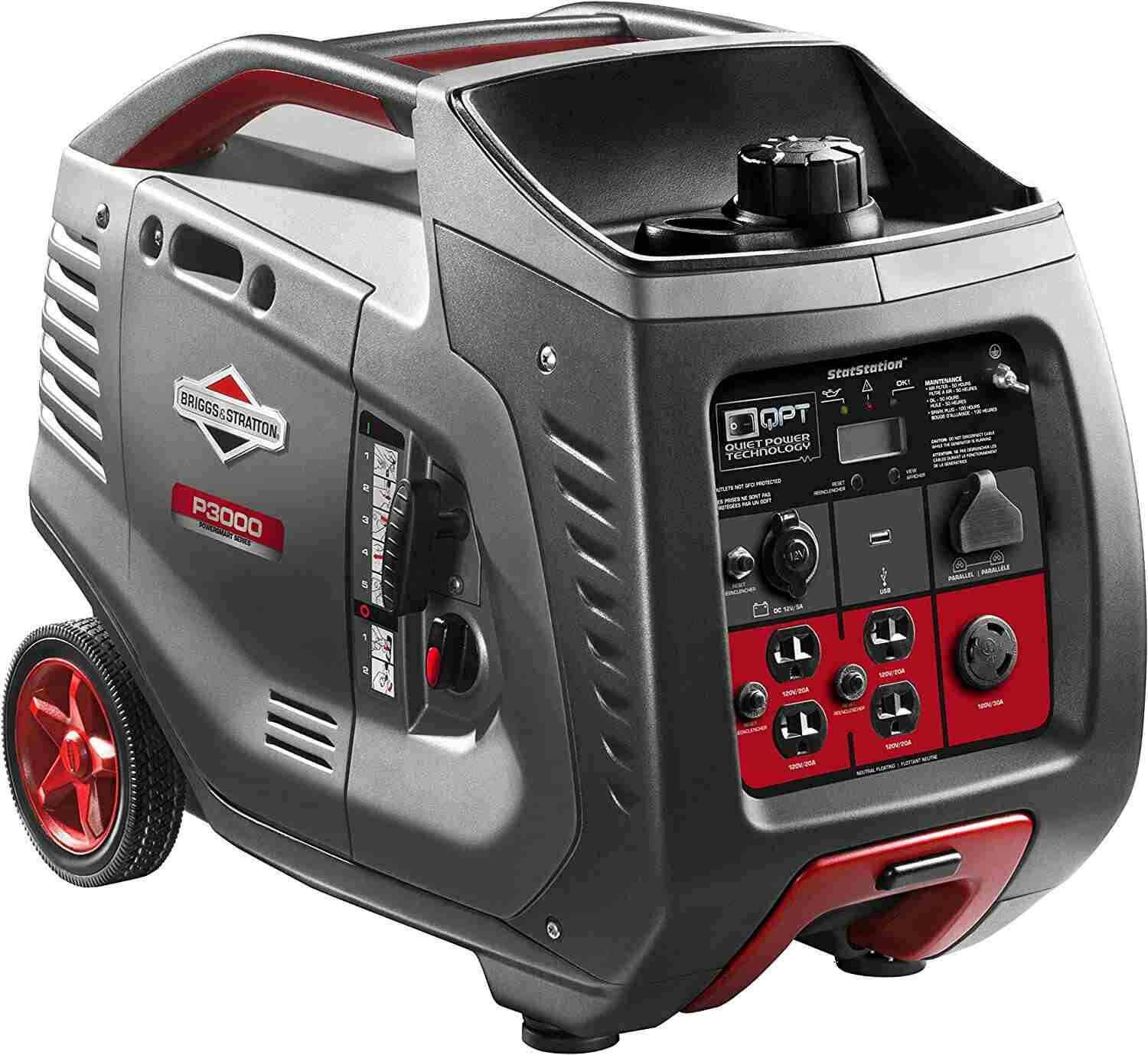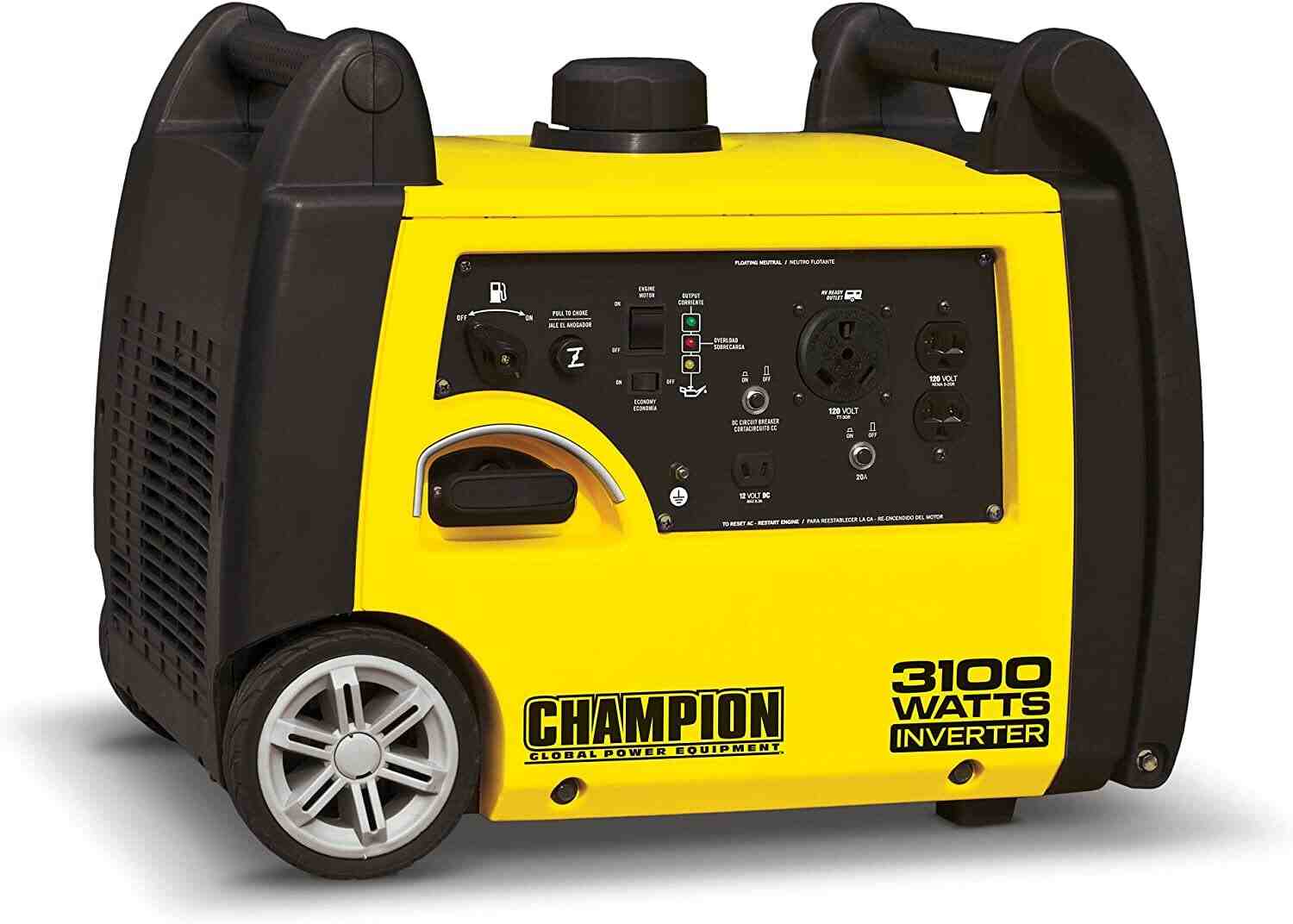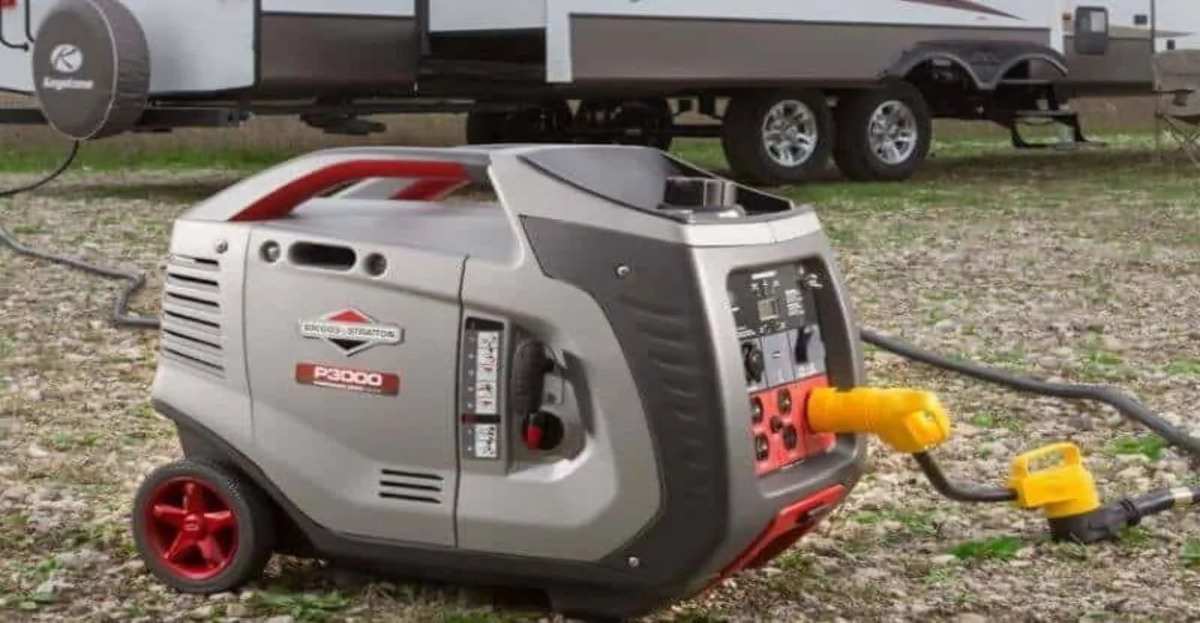Generator sizing is important for both RV owners and for campground owners. When you buy a generator, it’s important to know how much power your RV needs so that you can properly size the unit.
We’ve written an article about what’s considered an appropriate size generator for a 30-amp RV, but we wanted to share some real-life examples of how other people have used these units in their own setups.
What Size Generator Do I Need To Power A 30 Amp Rv?
Getting a generator to power a 30 Amp RV has its own function, basically, a 30 Amp RV requires about 3,600 watts to run effectively.
At a minimum, a generator that produces 3,000 watts is enough to power a 30 amp RV, but if you intend to use all the appliances in your RV, a 3,000 watts generator might not be able to power them all. The best option is to purchase a 3,600 watts generator.
What Is The Best Generator That Works With a 30 Amp RV?
Choosing the best generator that works well with your 30 Amp RV requires you to do some research into the power requirements of your RV’s appliances.
This guide will recommend the best portable generators that’ work perfectly with your 30 Amp RV.
1. Briggs & Stratton P300 PowerSmart Quiet RV Generator

You can have a short product description here. It can be added as an enable/disable toggle option from which users can have control of it.
Anyone who prefers to keep track of their power usage will find the Briggs & Stratton P3000 power smart series RV generator to be a terrific choice. Your current power usage, the number of hours the generator has run overall, and any upcoming maintenance, such as oil, air filter, and spark plug changes, are all shown to you via the LCD display.
Even though this generator weighs a substantial 84 pounds, its sturdy six-inch wheels make moving it considerably simpler.
You can actually buy two of these generators and operate them concurrently if your RV has two air conditioners. Although it is not the quietest generator available, its operating noise level of 59 decibels won’t disturb your fellow RV campers.
What We Like:
- LCD display: Displays total unit hours, current power usage, and maintenance reminders.
- Mobility: Wheels and lighter weight make it simple to move around as necessary.
- It’s safe for sensitive devices: Provides clean electricity for computers, phones, and other delicate electrical devices.
What We Don’t Like:
- Smaller fuel Tank: only holds a total of 1.5 gallons
- Not the quietest generator for 30 amp RVs while operating
2. Champions 3100-watt RV-ready Portable Generator

You can have a short product description here. It can be added as an enable/disable toggle option from which users can have control of it.
Check out the Champion 3100-watt portable Generator if you want to get a reliable 30 amp RV generator without paying more than your current budget would allow.
It is one of the most affordable generators that can still power all the essential Appliances in your 30 Amp RV.
What We Like:
- It is one of the cheapest generators for a 30 amp RV.
- The generator protects your RV and appliances in case of electrical overload.
- It reduces the electrical load to preserve engine life and improve fuel usage.
What We Don’t Like:
- At full fuel tank, it can only run for 8 hours maximum
- It cannot be paired with another generator for additional power.
How To Choose a Generator Size For Your RV?
If you’re not sure what size generator you need for your RV, there are a few things to consider. First, think about how much power you’ll need to run your RV’s essential appliances and lights. Then, consider what other uses you might have for a generator (like charging your phone or running a coffee maker).
There are different factors you need to examine before choosing a generator size for your RV, and yes, it cuts across if the generator can carry all your RV appliances.
– Fuel type
Gas, propane, or diesel are the three fuel sources used by the majority of RV generators. You should generally get a generator that uses diesel fuel if your RV does, as they are built for optimum power.
A gas-powered generator makes more sense for an RV that operates on gas because gas can be found almost anywhere. In general, gas-powered inverter generators are cheaper and more fuel-efficient than traditional gas-powered generators.
The longer shelf life and cleaner emissions of propane are benefits of a propane generator. However, the size of the fuel tank in this type of generator largely determines how much power it can generate. When you need a refill, propane may be more difficult to locate than gas in some areas.
Dual-fuel generators are also available, which run on various fuel mixtures. In essence, if one fuel source runs out, you have a backup now. This kind of generator is particularly cost-effective and requires less overall fuel storage.
– Portability
The majority of these 30 amp generators aren’t the lightest items available. You might not want to strain your back moving a generator that can weigh up to 80 pounds when you have to move them.
Some of the greatest of these generators feature collapsible handles and sturdy, never-flat wheels. If you anticipate moving your generator frequently, look for these characteristics.
– Noise level
If you don’t want your generator to keep you awake at night or bother the people who live next to you in the RV park, noise is a crucial consideration.
A typical human conversation has a sound level of roughly 60 decibels. You certainly don’t want a generator that creates any more noise than that as even a light chat can keep you up at night.
Fortunately, when operating in their respective economy settings, the majority of these 30 amp RV generators emit between 55 and 70 decibels.
Why Do I Need a Generator For My RV?
There are a few reasons why you might need a generator for your RV. First, if you plan on boondocking (camping without hookups), you’ll need a way to power your RV. A generator can provide the power you need to run your RV’s appliances and keep your lights on.
Second, even if you do have hookups, a generator can be a good backup in case of an outage. If there’s a power outage at your campsite, a generator can keep your RV running until the power comes back on.
Finally, some RVs come with built-in generators. These generators can be used to power your RV’s appliances and lights when you’re not hooked up to shore power.
What Are The Different Types Of Generators?
There are several different types of generators that you could use to power an RV. The most popular type is a gas generator. These are typically very affordable and easy to find. However, they can be quite loud when running, so they may not be the best option if you’re looking for a quiet RV experience.
Another option is a diesel generator. These are usually more expensive than gas generators, but they’re also much quieter. Diesel generators are a good option if you’re looking for a generator that won’t disturb your peace and quiet while you’re enjoying your RV.
Finally, there are solar generators. These are becoming more popular as technology improves. Solar generators are very quiet and environmentally friendly. However, they can be quite expensive.
Related Posts:
Conclusion
If you’re camping in a 30 amp RV, it’s important to know how much power your generator needs to produce. If you don’t have enough power, your appliances will overheat and break down. You don’t want that.

